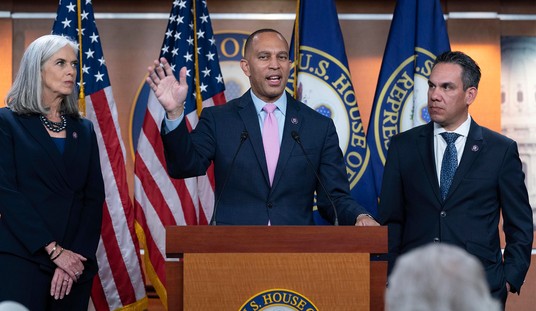Republican National Committee Chairman Reince Priebus during an appearance on Sunday’s edition CBS’ “Face the Nation,” said that it’s time for Donald Trump’s former primary challengers to support his campaign. Priebus even suggested there could be trouble for them in 2020 or 2024 if they don’t:
Those people need to get on board. And if they’re thinking they’re going to run again someday, I think that we’re going to evaluate the process – of the nomination process and I don’t think it’s going to be that easy for them.
Ohio Gov. John Kasich, Texas Sen. Ted Cruz, and former Florida Gov. Jeb Bush have still not yet endorsed Trump. And nobody really thinks they will.
When asked explicitly whether that meant there would be penalties for those 2016 Republican hopefuls who have not endorsed Trump if they run again in 2020 or 2024, Priebus said nothing has been decided but that it’s something the party will look at.
All 17 of the major Republican candidates signed a so-called “loyalty pledge” last summer stating that they would support the eventual Republican nominee “regardless of whom it is.” The pledge was the result of Trump suggesting that if the GOP didn’t play “fair” he might run as a third party. While the document is not legally binding, some states have “sore loser” laws that would prevent a candidate who appeared in a party’s primary and didn’t get the nomination from filing as an independent candidate in the general election.
That may be why Priebus suggested the ban:
People in our party are talking about what we’re going to do about this. I mean there’s a ballot access issue in South Carolina. In order to be on the ballot in South Carolina, you actually have to pledge your support to the nominee, no matter who that person is. So what’s the penalty for that? It’s not a threat, but that’s just the question that we have a process in place.”
And if a private entity puts forward a process and has agreement with the participants in that process, and those participants don’t follow through with the promises that they made in that process, what– what should a private party do about that if those same people come around in four or eight years?
Really there is nothing to be done here. While a clever lawyer might be able to make the loyalty pledge legally binding, litigation to enforce the pledge isn’t going to resolve the dispute in a useful manner.
At the end of the day, if you cause your opponents to dislike you so much that they won’t endorse you, just deal with it. You probably don’t care anyway, right Donald? This isn’t like banning Muslims. Or is it?














Join the conversation as a VIP Member